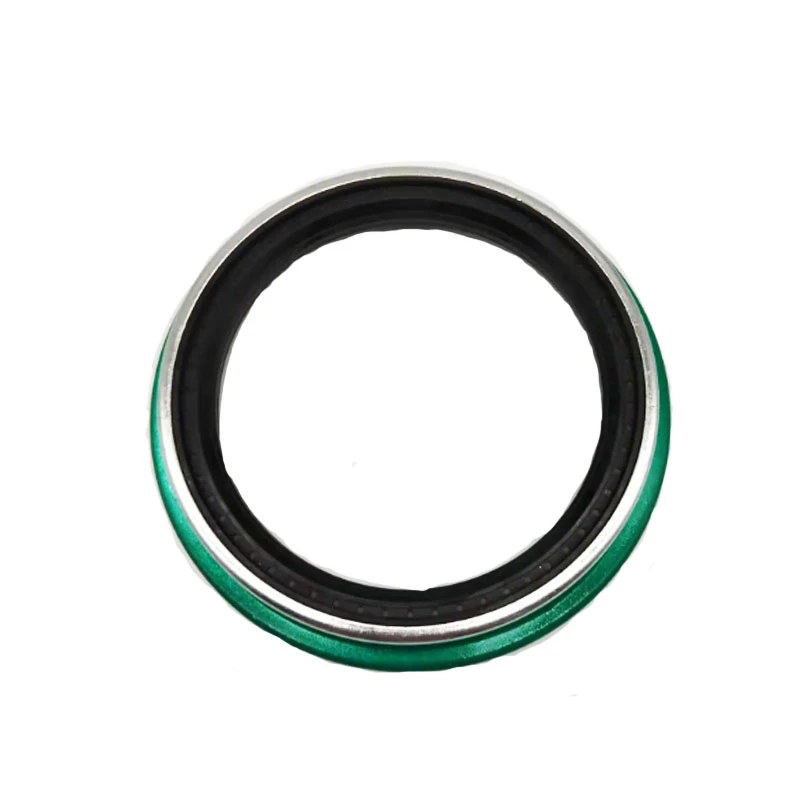trailer wheel bearing grease seals
Understanding Trailer Wheel Bearing Grease Seals
When it comes to maintaining trailer wheels, one of the most essential components to consider is the wheel bearing grease seal. These specialized seals serve a vital role in ensuring the longevity and efficiency of your trailer's wheel bearings, which are crucial for safe towing. In this article, we will delve into the significance of grease seals, how they function, and the importance of maintaining them.
What are Wheel Bearing Grease Seals?
Wheel bearing grease seals are designed to prevent lubricant leakage and protect the bearings from contaminants like dirt, water, and debris. They form a crucial barrier between the wheel hub and the external environment. Typically made from rubber, silicone, or polyacrylate, these seals have to withstand a variety of conditions, including heat, moisture, and the varying pressures found in trailer applications.
How Do They Work?
The primary function of grease seals is to retain the grease that lubricates the wheel bearings while keeping harmful contaminants out. When a trailer is in motion, the wheel bearings generate heat due to friction. Adequate lubrication is essential to minimize this friction and prevent excessive wear and tear. The grease seal creates a tight fit that contains the grease and extends the life of both the grease and the bearings.
A typical grease seal consists of a metal casing and a flexible lip. The metal casing is pressed into the wheel hub, creating a stable and resilient surface. The flexible lip of the seal makes contact with the axle, establishing a tight seal. This design allows the seal to expand slightly under pressure, ensuring a secure fit to trap the grease inside.
Why are Grease Seals Important?
The importance of grease seals cannot be overstated. If a grease seal fails, it can lead to numerous issues
1. Grease Leakage Without a functioning seal, grease may leak out, leading to inadequate lubrication. This can cause bearings to overheat, resulting in premature failure.
2. Contamination A compromised seal allows dirt, water, and other debris to enter the bearing assembly. This contamination can lead to rust and corrosion, drastically reducing the life expectancy of the wheel bearings.
trailer wheel bearing grease seals

4. Costly Repairs Regularly replacing wheel bearings is an expense that can be avoided with proper maintenance of the grease seals. If seals are not monitored, the cascading costs of premature bearing failure can be significant.
Maintenance of Grease Seals
Maintaining grease seals is a relatively straightforward process, but it can save you from major headaches down the road. Here are some essential tips
- Regular Inspections Frequent checks of your trailer's wheel bearings and grease seals can help catch any issues early. Look for signs of grease leakage or damage to the seals.
- Keep Bearings Greased Ensure that wheel bearings are adequately lubricated. Use the right type of grease as specified by the manufacturer, as different applications may require different formulations.
- Replace Worn Seals Promptly If you notice cracks, wear, or tears in the seal, replace it immediately. This simple action can prevent further damage and extend the lifespan of your wheel bearings.
- Professional Help If you're unsure about the condition of your grease seals or wheel bearings, consult a professional mechanic who specializes in trailer maintenance.
Conclusion
In summary, wheel bearing grease seals are integral to the safe operation and longevity of your trailer. They protect your wheel bearings from wear and tear caused by friction and contaminants. Routine maintenance and timely replacement of worn seals can save you from costly repairs and unsafe driving conditions, ensuring that your trailer remains a reliable mode of transport for years to come. Being proactive about these small yet critical components is undoubtedly a worthwhile investment for every trailer owner.
-
Simplifying Oil Changes: A Comprehensive Guide to Oil Drain Plugs and Their Variants
News Aug.04,2025
-
Mastering Oil Drain Maintenance: Solutions for Stripped, Worn, and Upgraded Oil Plugs
News Aug.04,2025
-
Fixing Oil Pan Plug Issues: Leaks, Stripped Nuts, and the Right Replacement Solutions
News Aug.04,2025
-
Everything You Need to Know About Oil Drain Plugs: Sizes, Fixes, and Upgrades
News Aug.04,2025
-
Choosing the Right Oil Drain Plug: A Guide to Sizes, Materials, and Drain Innovations
News Aug.04,2025
-
A Complete Guide to Automotive Drain Plugs: Types, Problems, and Innovative Solutions
News Aug.04,2025
-
The Ultimate Guide to Car Repair Kits: Tools and Essentials Every Driver Should Own
News Aug.01,2025
Products categories















